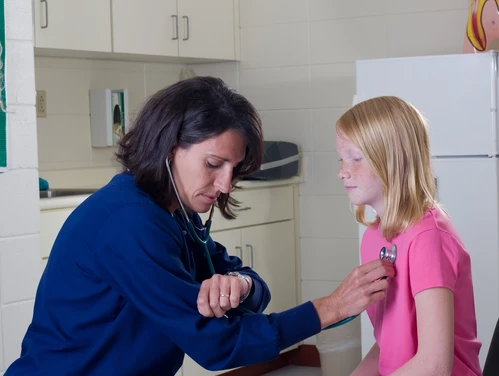Content Information
On this page...
Introduction
Registered nurses use their professional judgment to designate school personnel for the delegation of health service delivery. For example, the school nurse delegates medication administration in the school setting of districts or accredited nonpublic schools to align with the required policy and licensed practice. The medication administration course required by the regulation combines an online course owned and managed by the department. The course is taken every five years and requires a yearly hands-on skills demonstration from the delegatee to the school nurse showing competency in performing safe medication administration. This document provides school nurses with sample labels, a list of supplies, a list of steps in delegation of medication administration, a sample form for delegation, evaluation and more. School personnel must complete the sections in the online course and pass the quizzes to receive an unsigned certificate. The certificate is not valid until the school nurse signs the certificate attesting that the personnel have completed a hands-on skills demonstration for safe medication administration. Delegation of other health services also require an annual skills demonstration and other steps in the delegation process as outlined in the Nurse Practice Act. Nothing in this toolkit supersedes the professional nurse’s judgment and accountability in nursing practice or delegation according to the Nurse Practice Act.
Back to topPolicies & Medication Administration
Policies provide general directions that guide decision-making according to laws. Many districts, private schools and charter schools place their policies on their school website.
Parent(s) and legal guardian(s) may provide medications to the school for their child. A medication is also called a “drug”. The Federal Drug Administration (FDA) defines a drug in the Federal Food Drug and Cosmetic Act as, “Articles intended for use in the diagnosis, cure, mitigation, treatment, or prevention of disease” and “articles (other than food) intended to affect the structure or any function of the body of man or other animals” (FDA, 2024).
All drug products offered for importation into the United States are subject to labeling requirements. FDA may review drug labeling at the time the product is offered for import to verify compliance with their regulations. Specific drug labeling requirements depend on the type of drug product. Over–the counter nonprescription drugs, prescription drugs, and drugs imported for drug efficacy studies are also subject to specific labeling requirements in addition to the general drug label provisions (FDA, 2024). The United States Drug Enforcement Agency schedules drugs approved by the FDA.
All children, as healthcare consumers, have the right to nursing care that meets legal standards of healthcare regardless of the practice setting. School nurses and qualified, designated personnel are the last individuals to interact with the child/student taking the medication during the school day and at school activities to ensure safety. This is why it is important for individuals who administer medication to ensure that they are administering to the right person, are administering the right dose, have the correct medication, have the correct route, at the right time, have the ability to communicate any discrepancies, and have documented the task completion or circumstance. They must also understand students have the right to refuse, the nurse must complete a right assessment, the learner and family must receive the right education and there should be a right evaluation. These are commonly referred to as the 10 rights of safe medication administration.
Back to top10 Rights of Safe Medication Administration
The first six rules, marked below by an asterisk (*), are the essential rights used in the function of completing every medication administration by qualified personnel who have been delegated this task.
1. Right Learner*
- Verification of learner’s identity
- Collecting personal information
- Utilizing advanced technology and student identifiers
2. Right Medication*
- Double-check protocols
- Highlighting errors in medication prescriptions
- Medication reconciliation by the child’s healthcare team
- Using barcode scanning system
- Giving the right medication to the learner
3. Right Dose*
- Administrating the right dosage for learner safety
- Accurate measurements of prescriptions
- Precise Dosing
- Dosing protocols
4. Right Route*
- The child’s healthcare team explores administration routes such as oral, intramuscular, and more
- The child’s healthcare team identifies the learner’s condition and then chooses and follows the right route on the prescription or manufacturer’s label
5. Right Time*
- Administrating medications at the right time
- Emphasizing the drawbacks of missed dosage
6. Right Documentation*
- Maintaining necessary records as a legal requirement
- Recording name of medicine, dose intake timings, leaner’s reaction to the medicine intake etc.
7. Right to Refuse
- Accepting leaner’s refusal to medication
- Foster open communication with the learner and their parents
8. Right Assessment
- The school nurse completes the assessment of the learner
- The school nurse will check if medication accurately aligns with the assessed condition, maintain accountability, and only delegate if parameters are clearly received and the task is within the scope of practice and delegation
9. Right Education
- The school nurse completes education and provides the learner and their families with all the information regarding the prescribed medications when completing 1:1 education
- Communicating the purpose and possible side effects of the medicine administered with the learner and their family
10. Right Evaluation
- Monitor leaner’s response towards the medicine
- Carefully evaluating and communicating with families and the child’s healthcare provider if there are any adverse effects on learner’s health from medicine prescribed
